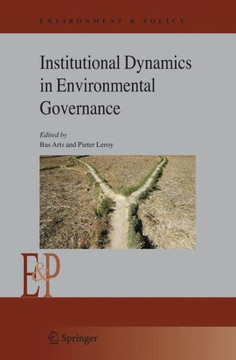
MDPI AG
Governing Forest Restoration: Social, Environmental and Institutional Dimensions

Governing Forest Restoration: Social, Environmental and Institutional Dimensions
Negotiation, reconciliation of multiple scales through both ecological and social
dimensions and minimization of power imbalances are considered critical challenges to overcome
for effective governance of forest restoration. Finding the right mix of "command and
control" in forest restoration vs. "environmental governance", which includes non-state actors,
regulatory flexibility, and market based instruments is at the heart of these challenges. This
Special Issue attempts at shedding light on these challenges with case studies from South and
Central America, Africa, and Asia. Some provide within-country as well as cross-country
comparisons. A few others present case studies at the household level. Both policy and legal
constraints towards implementing forest restoration are also discussed as a function of top
down vs. bottom up approaches. The effectiveness of payments for environmental services is
examined as catalyzers of forest restoration initiatives. Finally, two papers deal with the legal
and policy constraints in making restoration through natural regeneration a viable and costeffective
tool. In the face of renewed perspectives for expanding forest restoration programs
globally, governance issues will likely play a key role in eventually determining success. As
many of the papers in this Special Issue suggest, the fate of forest restoration outcomes is,
more often than not, associated with overall governance challenges, some of which are often
overlooked particularly across multiple scales
| Author: Manuel R. Guariguata |
| Publisher: Mdpi AG |
| Publication Date: Apr 01, 2015 |
| Number of Pages: 216 pages |
| Binding: Hardback or Cased Book |
| ISBN-10: 3038420433 |
| ISBN-13: 9783038420439 |





